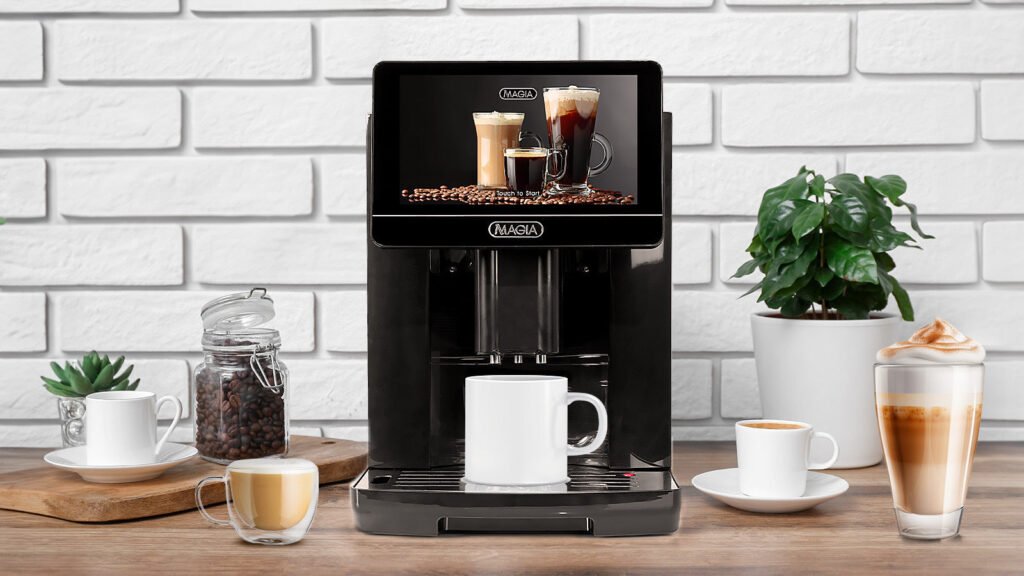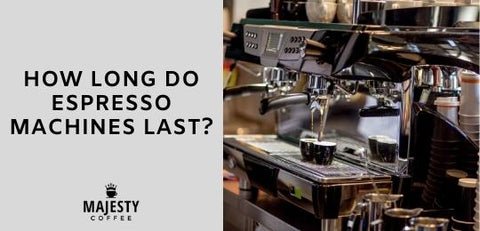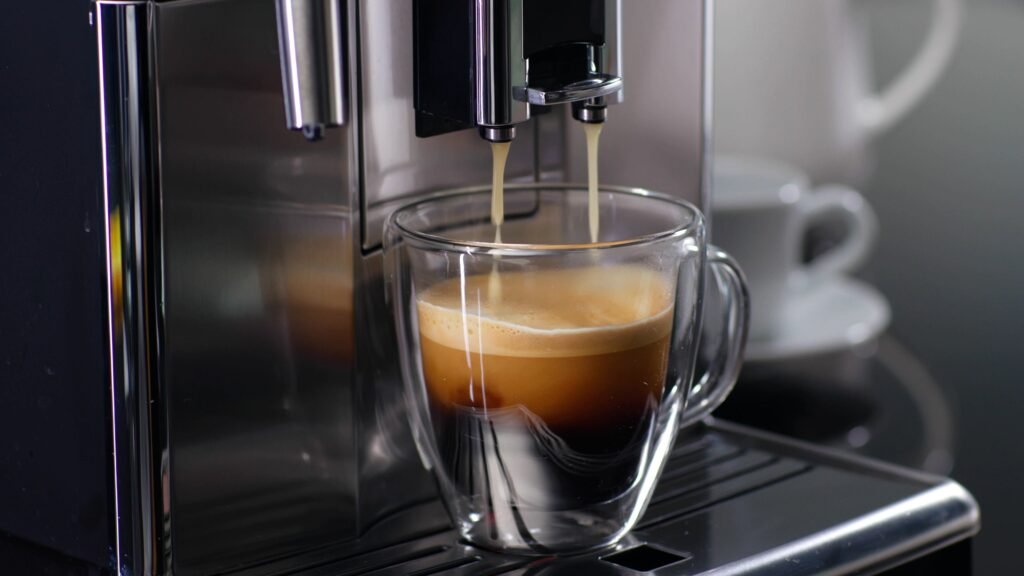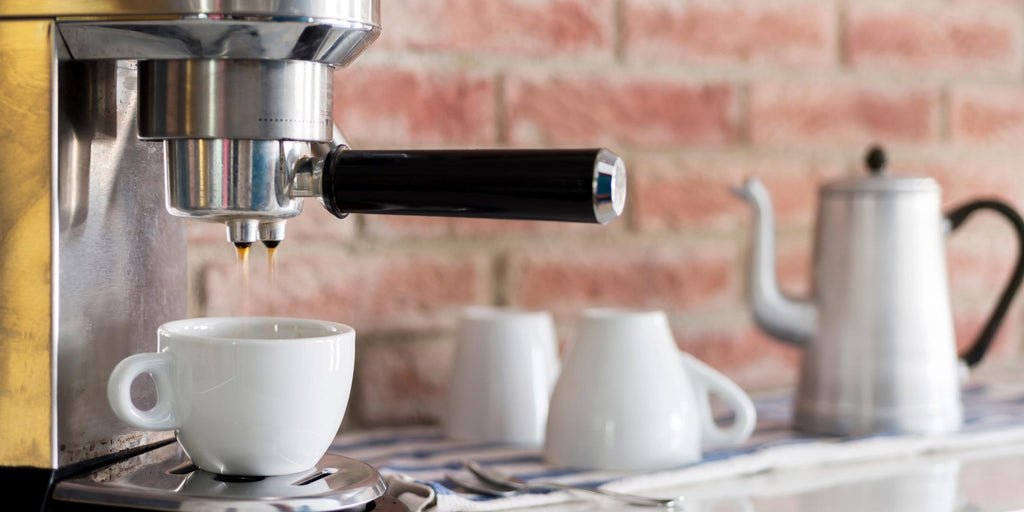Have you ever wondered how long the average espresso machine lasts? If you’re a coffee enthusiast or a café owner, you know that investing in a high-quality espresso machine is crucial for that perfect cup of coffee. This article aims to explore the lifespan of the average espresso machine, providing you with valuable insights to maximize your machine’s longevity and ensure you always have a reliable companion for your coffee-making journey.

Factors Affecting the Lifespan of Espresso Machines
Many factors influence the lifespan of an espresso machine, making it essential to consider each aspect carefully. By understanding these factors, you can ensure that your investment lasts as long as possible.
Build Quality
The build quality of an espresso machine significantly impacts its longevity. Machines made from high-quality materials, such as stainless steel and brass, generally last longer than those made from plastic components. The internal components, such as the pump and boiler, also play a role in the machine’s durability.
| Build Material | Average Lifespan |
|---|---|
| Stainless Steel | 10-15 years |
| Brass | 10-15 years |
| Plastic | 5-7 years |
When selecting an espresso machine, pay attention to the materials used in its construction. Investing in a robustly built machine might cost more upfront, but it can save you money in the long run by reducing the need for frequent replacements.
Usage Frequency
How often you use your espresso machine is another critical factor in determining its lifespan. Machines used in a busy café setting will experience more wear and tear compared to those in a domestic environment.
| Usage Frequency | Average Lifespan |
|---|---|
| Heavy (Commercial) | 3-5 years |
| Moderate (Home) | 7-10 years |
| Light (Occasional) | 10-15 years |
It’s essential to consider how much you plan to use your machine when deciding on the type and model to purchase. Commercial settings may require more robust, heavy-duty machines than those needed for home use.
Maintenance and Cleaning
Proper maintenance and regular cleaning are vital for extending the life of your espresso machine. Over time, coffee oils and mineral deposits can build up, causing the machine to work harder and potentially leading to premature failure.
Daily Cleaning Tasks
- Empty and rinse the portafilter and basket
- Wipe down the steam wand
- Remove and clean the drip tray
Weekly Cleaning Tasks
- Descale the machine, especially if you have hard water
- Clean the group head
Monthly Cleaning Tasks
- Backflush the machine with a cleaning solution
- Replace the water filter (if applicable)
By following a regular cleaning and maintenance schedule, you can keep your espresso machine in top condition, ensuring it delivers optimal performance over the years.
Quality of Water
The quality of water you use in your espresso machine also affects its longevity. Hard water, which contains high levels of minerals like calcium and magnesium, can lead to limescale buildup in the boiler and pipes. This accumulation restricts water flow and may cause damage to the internal components.
To mitigate the effects of hard water, you can use a water filter or softener. Regular descaling can also help prevent limescale buildup, ensuring your machine operates smoothly for years.
| Water Quality | Average Lifespan |
|---|---|
| Soft Water | 10-15 years |
| Hard Water (Untreated) | 5-7 years |
Machine Type
Different types of espresso machines have varying lifespans. Manual, semi-automatic, automatic, and super-automatic machines all have distinct characteristics that affect their durability.
| Machine Type | Average Lifespan |
|---|---|
| Manual | 15-20 years |
| Semi-Automatic | 10-15 years |
| Automatic | 7-10 years |
| Super-Automatic | 5-7 years |
Manual espresso machines tend to last the longest, as they have fewer electronic components that can fail. However, they require a higher level of skill and effort to operate. On the other hand, super-automatic machines offer the most convenience but may have shorter lifespans due to their complexity and reliance on electronic parts.
Tips to Extend the Lifespan of Your Espresso Machine
With proper care and attention, you can significantly prolong the life of your espresso machine. Here are some practical tips to help you get the most out of your investment.
Regular Maintenance
Stick to a regular maintenance schedule to keep your machine in optimal condition. This includes daily cleaning tasks, weekly descaling, and monthly backflushing. Maintaining your machine will prevent the buildup of coffee oils and mineral deposits that can cause damage over time.
Use High-Quality Water
Using filtered or softened water can prevent limescale buildup and extend the life of your machine. Consider investing in a water filter or softener if you have hard water in your area. Regularly descaling your machine will also help maintain its performance.
Operate Within Capacity
Avoid overloading your espresso machine by operating it within its intended capacity. Commercial machines can handle higher volumes of use, while home machines are designed for lighter usage. Using your machine beyond its capacity can strain its components and lead to premature failure.
Proper Storage
Store your espresso machine in a cool, dry place when not in use. Exposure to extreme temperatures and humidity can damage the machine’s internal components. Covering the machine with a dust cover can also help protect it from dirt and debris.
Invest in Quality Parts and Accessories
Using high-quality, compatible parts and accessories can reduce wear and tear on your espresso machine. Invest in a good-quality tamper, portafilter, and grinder to ensure the best performance and longevity for your machine.
Professional Servicing
Consider having your espresso machine professionally serviced at least once a year. A trained technician can identify and address potential issues before they become significant problems. Regular servicing can help keep your machine in top condition, ensuring it lasts for many years.

Signs Your Espresso Machine Needs Replacement
Even with proper care and maintenance, there will come a time when your espresso machine needs replacement. Here are some signs to look out for that indicate it may be time to invest in a new machine.
Decreased Performance
If your espresso machine is struggling to maintain consistent pressure or temperature, it may be a sign that its internal components are wearing out. Decreased performance can affect the quality of your coffee, making it less enjoyable.
Frequent Repairs
If you find yourself constantly repairing your espresso machine or if the cost of repairs is adding up, it may be more cost-effective to invest in a new machine. Frequent repairs can indicate that the machine is nearing the end of its useful life.
Leaking
Leaking water or steam from your espresso machine can indicate worn-out seals or gaskets. While these parts can sometimes be replaced, persistent leaks may be a sign of more significant issues that warrant a replacement.
Outdated Technology
Espresso machine technology is continually evolving, with new features and improvements being introduced regularly. If your machine is outdated and lacks modern features, it may be worth considering an upgrade to enhance your coffee-making experience.
Visible Wear and Tear
Visible signs of wear and tear, such as rust, cracks, or corrosion, can indicate that your espresso machine is reaching the end of its lifespan. These issues can compromise the machine’s safety and performance, making it necessary to replace it.

Choosing the Right Espresso Machine for Longevity
Selecting the right espresso machine for your needs is crucial for ensuring its longevity. Here are some factors to consider when choosing a new machine.
Intended Use
Consider how often you plan to use your espresso machine and the volume of coffee you expect to produce. If you need a machine for a busy café, invest in a commercial-grade machine designed to handle high volumes of use. For home use, a high-quality semi-automatic or automatic machine may be sufficient.
Budget
Determine your budget before purchasing an espresso machine. While high-quality machines may have a higher upfront cost, they can save you money in the long run by lasting longer and requiring fewer repairs. Consider investing in a machine that offers the best value for your money.
Features
Consider the features you need in an espresso machine. Manual machines offer more control over the brewing process but require more skill and effort. Automatic machines are more convenient but may have shorter lifespans due to their reliance on electronic components. Choose a machine that balances the features you want with the durability you need.
Brand Reputation
Research the reputation of the brand you are considering. Brands with a history of producing reliable, high-quality espresso machines are more likely to offer durable products that will last for many years. Look for customer reviews and testimonials to gauge the performance and longevity of the machine.

Conclusion
The lifespan of an average espresso machine can vary widely based on several factors, including build quality, usage frequency, maintenance, water quality, and machine type. By understanding these factors and following proper care and maintenance practices, you can extend the life of your espresso machine and enjoy delicious coffee for years to come.
When it’s time to replace your espresso machine, consider your needs, budget, and the features you require. Investing in a high-quality machine from a reputable brand can ensure you get the best value and longevity from your purchase. So, next time you sip on that perfect espresso, remember the importance of taking good care of your trusty machine and appreciate the craftsmanship behind every rich, aromatic shot.

